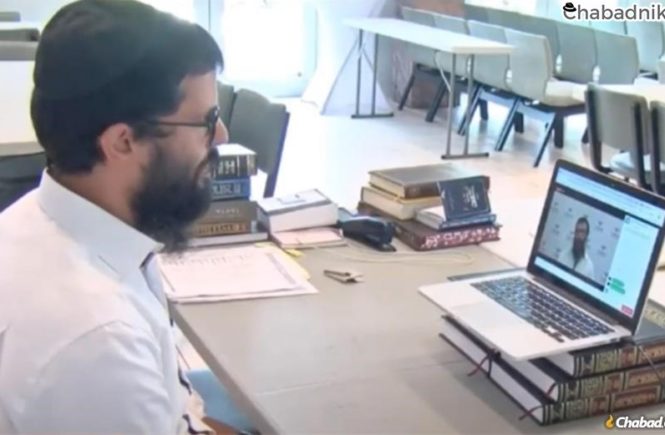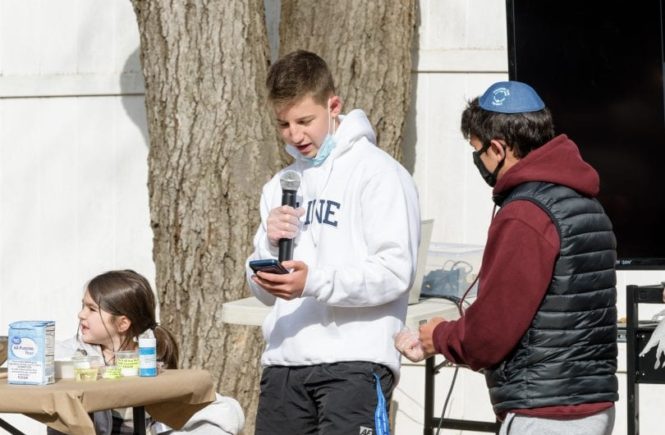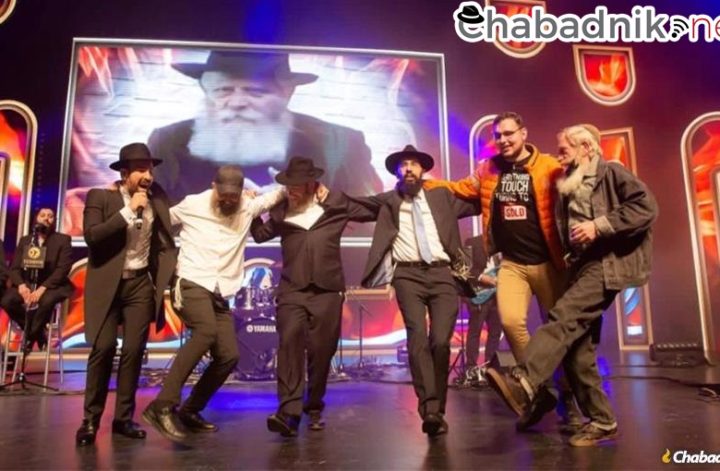Florida rabbi finds eager audience for ‘Gates of Trust’ and other ancient texts
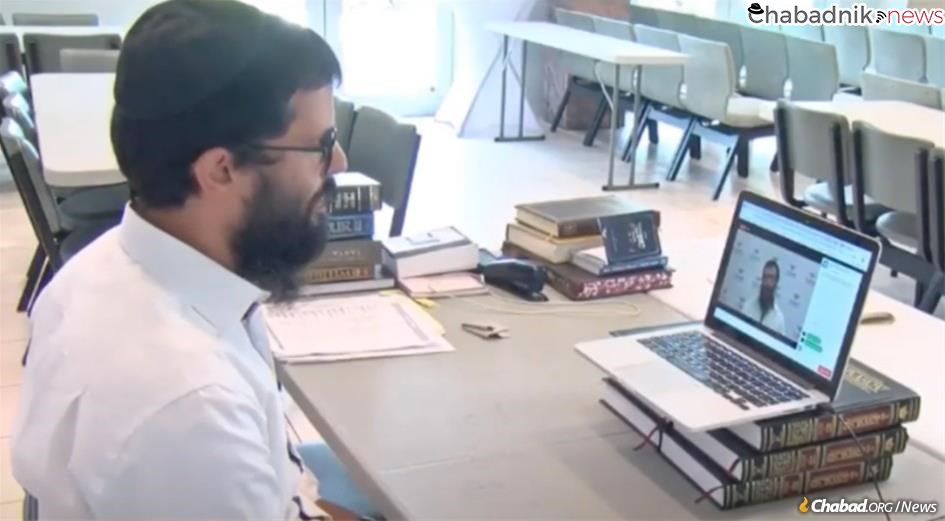
Duties of the Heart (Chovot Halevavot), authored almost a millennia ago by Rabbi Bahya ibn Paquda in Spain, is a classic work of Jewish literature, but not yet a New York Times bestseller. But when Terri Zweig, who left Virginia to move to Atlanta, to help her parents, was forced into lockdown during the spring of last year, it was one of the key sections of this ancient text, The Gates of Trust (Shaar Habitachon), that served to get her through those difficult months. Particularly after breaking her leg in the summer, the philosophies set out therein were invaluable.
How did she find it?
On Facebook, of course. Known among her contacts as someone always eager to advance her Jewish literacy, a friend contacted her one day saying, “There’s a rabbi on Facebook streaming classes every day in this terrific ancient text about faith. You should check it out.”
So she did, and almost a year later, she counts herself as one of the growing body of students of one cheerful rabbi from an equally cheerful state: Rabbi Dovid Vigler of Chabad of Palm Beach Gardens, Fla.
“From the very first day of the lockdown, in March of 2020, I knew that I must pivot and move everything online,” Vigler told Chabad.org. “The truth is, I always felt that I needed to have more of a social-media presence, but never really got around to it. The pandemic forced me to really embrace it, and it has been absolutely incredible.”
Like the explosive growth in the audience for Torah classes offered on Chabad.org/Video since the beginning of the pandemic, Vigler has seen tremendous growth and opportunity that would have never been otherwise possible.
In the nascent days of his online streaming, the rabbi acknowledges his technology wasn’t all that great. But as time went on, he advanced his capabilities and streaming options, transforming his small Zoom sessions into a global yeshivah with thousands of students.
The numbers are dizzying, but the process is quite regimented. Every morning, at 8:30 am sharp, the rbbi gets on Zoom, pushes video feeds on social media, and teaches a full, in-depth lesson each day on a different topic. And people are flocking to his online hub.
“I’m naturally a very active person,” says David Rosen, currently of Lakewood, N.J., and manager of four kosher bagel shops around the area. Previously of upper management in the Starbucks coffee company in Seattle, Rosen explains that “I’m so used to running around. So, when the lockdowns got under way, I was looking for things to do.”
He turned to his Facebook account. Chuckling, he explains, “I usually only log on to Facebook to check on my adult children, but I was looking for things to do and stumbled on this dynamic rabbi from Florida giving classes on Facebook. I love coffee, and there he was—sipping his coffee so comfortably on the Zoom and teaching deep, intellectual material. How cool is that?”
Intrigued, Rosen stayed for the lesson and has kept coming back. Impressed by how the rabbi involves his wife and family in everything he teaches, Rosen and his wife, Jayne Rosen, now join together to study over YouTube, so much so that “we consider Rabbi Vigler as one our rabbis,” they said.
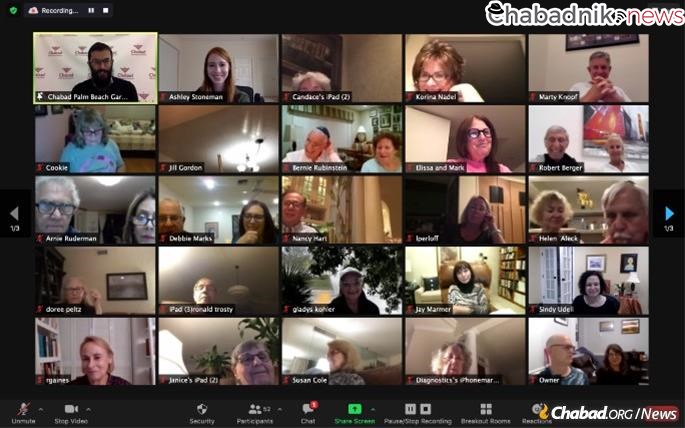
‘A High Level of Energy to the Lesson’
Much of what attracts such a diverse body of students is the rabbi’s unique teaching style. Recognizing the challenges of learning over a screen, Vigler says, “I try to bring a high level of energy to the virtual lesson and make an effort to interact with my audience.”
Zweig couldn’t agree more. “One of the things that immediately grabbed me was how the very first time I logged on, the rabbis paused and greeted me into his virtual space, really welcoming me.”
There are so many elements that go into ensuring an online academy can really grow into a proper community of learning. Diving deep into the analytics, Vigler has nailed down the precise length of time for a lesson (35 minutes) and is constantly interacting with his students.
“I really like that he’s so consistent, starting at the same time every morning,” says Zweig.
Rosen agrees: “I know what time the class will be each morning, so even if I’m in my store behind the counter, I prop up my phone and still get the chance to study Torah.”
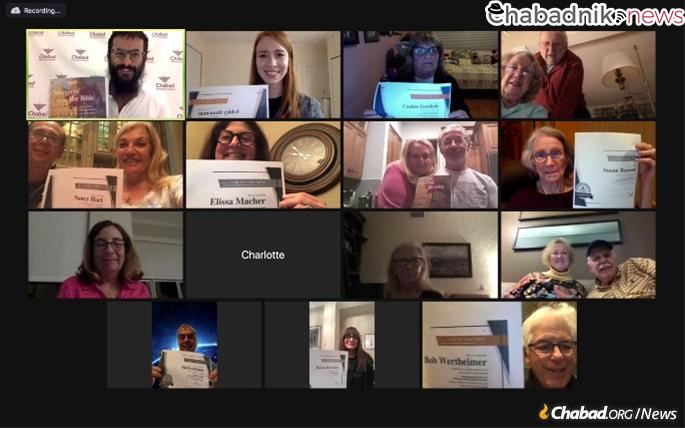
‘He Fully Believes What He’s Teaching’
While many prefer the warmth and personability of an in-person class, this community of Torah students are demonstrating just how hard it is to ignore the tremendous qualities that come with a virtual experience.
Take Malki Millstein of Cleveland, Ohio, for example. The classes Vigler provides have opened a window for her that would have never otherwise been available.
“I didn’t grow up Chabad, but I have always felt attracted to the teachings of Chassidut. I’ve long wanted to learn the Tanya, but it intimated me, leaving me too overwhelmed to even open it. But then I stumbled across Rabbi Vigler’s classes online, and his clear, simple and relevant teaching style opened the book for me. When he teaches, it’s apparent that he fully believes what he’s teaching and doesn’t varnish the truth in any way. The material comes across in such a powerful way, I cannot get enough of it.”
Indeed, from a foray into Tanya, Malki is now attending many of Vigler’s other daily classes, topics ranging from the Kings of Israel to an in-depth review of kosher laws. “Even subjects that I am already familiar with, when I learn it with Rabbi Vigler, it adds a whole new depth,” she says.
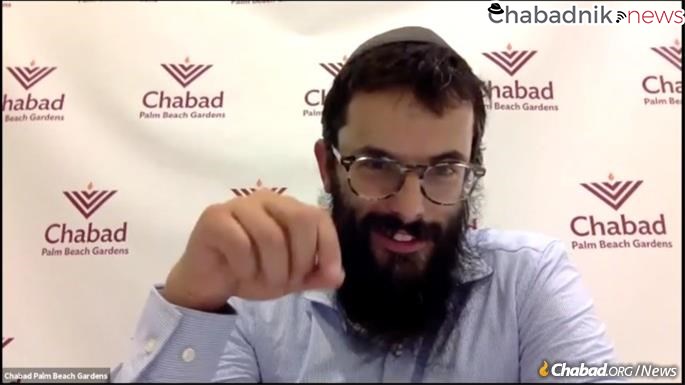
‘Zoom in a Lecturer From Anywhere’
Vigler reports how he is regularly in touch with students from Oregon to the Netherlands to Indonesia. Many of the contacts have moved from interactions during live study sessions to personal communications via email and other messenger apps.
Suffice it to say that the rabbi’s inbox has swelled in recent months.
The response to the online learning has been so positive, that Vigler can hardly imagine letting it go. “I have every intention of continuing after the pandemic subsides, please G‑d. In fact, I believe this is the way of the future: We plan on purchasing a massive 14-foot screen to install in our Chabad House, and G‑d willing, when we resume in-person events, we will still incorporate virtual guests as well. We can Zoom in a lecturer from anywhere in the world and Zoom an audience in as well. Why not?”
While so many wring their hands about “Zoom fatigue” and pining for those days when they could clamor around a table and kick up a storm of Torah study, for Zweig, Rosen, Millstein and the other thousands who have jumped on the bandwagon, there’s no looking back.
As Zweig puts it, “I thought I was coming to Georgia to help my parents, but G‑d had other plans. Everything I’m learning online is deepening my faith and trust that this is really what G‑d wants.”

